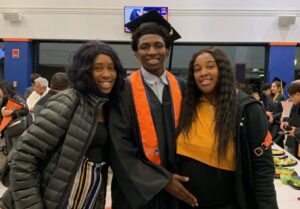When 500 Chicago Fire fans greeted Bastian Schweinsteiger at O’Hare in March 2017, little did the German soccer star know he was about to embark on what Swiss author Martin Suter would later call “the happiest time of his life.”
But lest anyone think that’s conjecture, take it from the song Schweinsteiger’s two sons, Luka and Leon, can’t stop singing.
Advertisement
“They’re always singing ‘Go, Cubs, Go,’ ” Schweinsteiger told the Tribune, laughing. “They’re really into it.”
Chicago plays a small part in “One of You: Bastian Schweinsteiger,” a recently released novelization of Schweinsteiger’s life from his humble beginnings in Oberaudorf to “Fußballgott” stardom with Bayern Munich, World Cup glory with Germany and stints with Manchester United and the Fire.
Advertisement
But the book, an instant German-language bestseller upon its January release and now available in English as an e-book, touches on the Fire’s recruitment of Schweinsteiger and how Chicago proved to be a significant city for him and wife Ana Ivanović, the former tennis star and French Open champion.
The Tribune recently spoke with Schweinsteiger and Suter about the book. This interview was edited for length and clarity.
How did the book come about? And why pick Martin to tell the story?
Bastian Schweinsteiger: I was sitting one day with a very good friend of mine on a bench in Munich in a beautiful square called Hofgarten, and I was talking about people who are writing a book. I got some offers before for someone to write a biography about my life but I was never convinced.
And he just said to me, “Why don’t you ask Martin Suter?” And then we met during the pandemic in Zurich in a very small room at the airport. I really felt how special Martin is.
It’s a big honor for me that a person like Martin Suter was writing a book about my life. He is one of the best authors in Europe, ever. I really, whenever I see Martin, have a smile on my face, and that’s always a good sign.
Martin Suter: When I was asked if I would do it, I said, let me think about it. But there were two conditions: It has to be a novel because I’m a novelist not a biographer, and the second was we have to meet and we have to like each other.
It took about five minutes before we had “du.” You don’t have that in English, but in German that is how friends call each other.
Advertisement
After 10 minutes, we shook hands even though it was prohibited because of the pandemic and said, “Let’s do this.”
Schweinsteiger: “Du” in English doesn’t exist. In America it’s like calling someone “bro.”
Suter: OK, bro (laughs).
Why make it a novel instead of a traditional nonfiction biography? And why a book at all? Martin at one point in the book writes that “Basti … once said he’d rather watch 1,000 matches than read a single book.”
Suter: I’m a novelist, I’m not a biographer. That’s the simple answer. I cannot write biographies. That is more like a journalistic kind of work.
But I like to write stories, and the big difference between a novel based on facts of living people and a free-written novel is that I have to check with the people. I cannot just write anything about the living person.
Advertisement
Schweinsteiger: I was never convinced about a classic biography. That’s why I liked the idea of Martin so much.
And books themselves should give an example to kids and people. Nothing was given in my life, my career. I had to make some sacrifices. So I just wanted to show how my life turned into this professional football career from normal surroundings as a child. That’s why I really liked the idea of how Martin wrote everything together. … The result is fantastic.
Martin, what was the writing process like in terms of gathering information and conducting interviews with Basti, his family and others knowing you had certain facts you had to get right while still having the artistic freedom of writing a novel?
Suter (holding up a bundle of paper): I think these are about 400 pages. And that’s not all, so there were a lot of interviews and transcripts of the interviews.
I could not invent the facts like I do in a novel because I cannot write, “They lost the (World Cup) final.” That’s a bit exaggerated, of course, but I have to stick to the facts.
When I describe a game, a match, I cannot invent the man that gave the pass to Basti that led to the goal. I have to write the right name. So I had to watch many YouTube videos. And when the (jersey) number was not visible, I had to look for another one of the same match or amateur ones, so it was a lot of research that I did not really expect.
Advertisement
But it was also an honor because some people keep forgetting this is a hero saga and like a hero saga it’s also a love story. This is a love story. And as Basti said at the very beginning, “I don’t believe in coincidence, I think everything happens for a reason.”
And then I thought, well, if nothing happens as a coincidence, it was not a coincidence that Ana and Basti met. So I mentioned the birth of Ana and her career as it follows his career. I thought that was a nice way to show that there are no coincidences.
Basti, have some of your former teammates read the book? What has the reaction been like?
Schweinsteiger: Some of them have read the book. It’s interesting. I got many reactions, the word “goose bumps” many times. That “goose bumps” was their answer when they read it.

I was flying yesterday from Cologne to Berlin, and the stewardess came to me and she had the book in her hands and she asked me to kindly sign it. And she said when she was reading the book, she had tears in her eyes.
That’s for me the biggest compliment. But I really have no quality in writing a book. That’s Martin’s job and that’s why he did it so brilliantly. And when you have those kinds of reactions on a plane, on the street, that is what matters, to reach out to the hearts of people.
Advertisement
As much as “One of You” is about Bastian Schweinsteiger the footballer, the book in some ways is more about Basti’s relationships with family, friends, teammates and Ana. What about that made it something you wanted to tell?
Suter: Because it’s about life and there is no life without relations to other people, and for Basti, family always was very important. It’s not only about football and football games. Football was his job. But at the beginning he said, “You know, football is not my life. Life was almost more important than football.” So I could not write a story about the hero Bastian Schweinsteiger without telling the story of his life. The life part is the more important part than the football part. That was always always clear for me.
Schweinsteiger: And most people remember games and matches and all that, but not really the human being, Bastian Schweinsteiger the person, because I never really spoke about it. But as Martin said, that was always my word: Football, soccer, is important, but life was always more important than that.
Suter: That is also what is so special about Basti. Basti said to me in one of our first meetings, “I never felt like someone special.” And that I think that made him special, to be a world star without feeling something special.
In his goodbye game between Chicago and Munich, at the very end of the match, he said into the microphone, “I’m one of you,” and that’s why the book is called “One of You.” That is a very important aspect.
“One of You” makes several music references, including hip-hop artists, a compilation of 1980s hits that Bayern manager Jupp Heynecks gave you, operettas — and a childhood fandom of the Spice Girls and Backstreet Boys. Why include so much music?
Advertisement
Schweinsteiger: Music was always very important to me. It kind of gives you motivation and a push. Even with the Chicago Fire, I was playing music in the dressing rooms, a lot of ‘80s. OK, I know most of them didn’t really know the songs (laughs), but (music) was always important.
A week ago I met Robbie Williams. … That was just very special for me to meet him because he was one of the heroes in the boy band Take That.
When you watch musicians and they have these concerts, they are entertainers. But they do it because they want to reach out to people. And that’s what it is. It’s about the memories and reaching out to people so they can connect.
Suter: I wanted to give the readers the feeling for the time this book (takes place), what was the fashion, how were they dressed, and the music was important.
I asked Basti what his music was and he was full of titles. That is atmosphere, and a novel needs atmosphere.
One recurring aspect of the book is Basti’s down moments — injuries, losing the Champions League final to Chelsea, being publicly criticized by coaches, etc. Why was that important to share with readers?
Advertisement
Suter: It’s a hero saga and the hero has to lose, get hurt and win. I cannot have a hero that always wins. It’s only Superman that always wins. Superman never loses.
But the real hero has to lose sometimes and does lose sometimes, does suffer, has pain, has tears, has broken hearts and everything. That makes a hero — that he overcomes these things and that he’s a winner at the end.
Toward the end of the book, Martin writes that you and Ana “felt so comfortable in Chicago” that you “decided to set down roots.” What about living in Chicago made it the “happiest time” of your life?
Schweinsteiger: Look, if your sons are born in Chicago, it means a lot. Everything was very nice in our period in Chicago. We made so many friends, the city was welcoming us so lovingly.
Obviously my most successful time as an athlete was in Munich. But if someone were to ask me what was the best time for me as a football player, a soccer player, I would say that it was the three years in Chicago.
I still loved the game and everything, but it was more enjoyable because I appreciated it more. Sometimes, when you play every week in front of 60,000 or 70,000 people, you kind of expect it and it’s guaranteed and you get used to it.
Advertisement
I really had a good time in Chicago, not only as a person but also soccer-wise. I really follow Chicago a lot, even the other sports like the Bears, the Blackhawks, the Bulls, the Cubs.
If someone were to ask me what was the best time for me as a football player, a soccer player, I would say that it was the three years in Chicago.
— Bastian Schweinsteiger
Suter: Ana told me the same thing — it was her best time because it was the first time since she was 13 or 14 that she had a home that she stayed at one place for such a long time. She was on the road all the time, and that must have been a very new experience.
Schweinsteiger: That’s why it was so nice. I could go to bed with her every night. I was with her the next evening. That’s why the time in Chicago was so special. We started our family there.
Your time with the Fire started well — a goal on your debut and a playoff appearance for the first time in 5 years — but the club couldn’t build off that 2017 season. Do you have any regrets about your time in MLS?
Schweinsteiger: No, not at all. I really enjoyed every single moment. I knew before I made the move to Chicago that the years before the club was on the bottom of the league, so I knew it was not always going to be easy and that we were not going to win every game.
We actually started off pretty well in the first season, but then reality kicked in. The results didn’t come in the second year, so then (teams) make good decisions, bad decisions.
Advertisement
But still, it’s good to see that MLS is progressing. I still follow the club a lot from Europe and wish them all the best of luck. But I don’t regret anything. It was a really cool time.
Of course, I had to get used to some things. When you lose twice in a row in Munich, that’s not nice at all. And Chicago it happened and we had to get used to it. But my goal was to give my experience to the club and to the players there. I hope I achieved it.

The book doesn’t go into details about your decision to retire. When did you know that 2019 would be your last season?
Schweinsteiger: Before (the season) I honestly didn’t know, but then throughout the season and when our second child was born, I really felt like I wanted to spend more time with our future World Cup champion (laughs). We just need to make sure what country he’s playing for, there are three options.
Some of the most touching moments in the book are with you and your brother, Tobi, with your dad, Fred, as he teaches you skiing and soccer. How are you as a dad with Luka and Leon, are they showing any interest in sports?
Schweinsteiger: They have blond hair, that’s a good sign (laughs). But one has the ability to do sports, the other one looks more like an artist. We do play a little bit, some soccer, some tennis, sometimes a little bit of golf, but they’re still young. Most important is that they learn other things, like how to behave and everything, that’s more important than the sport.
Advertisement
Suter: I have to add they are full of energy, the two boys. Full of energy. I think it’s a 24-hour job being parents of these two boys.
Schweinsteiger: Sometimes when we go to bed it feels like we have seven kids. That’s why I had to retire (laughs). It’s like in Germany we say when you play Bundesliga, cup games and then Champions League, that you play on three levels and that’s very difficult, so you have to know where your limit is.
By Martin Suter, translated from German by Tim Mohr
Diogenes Verlag, 314 pages, $19.99







